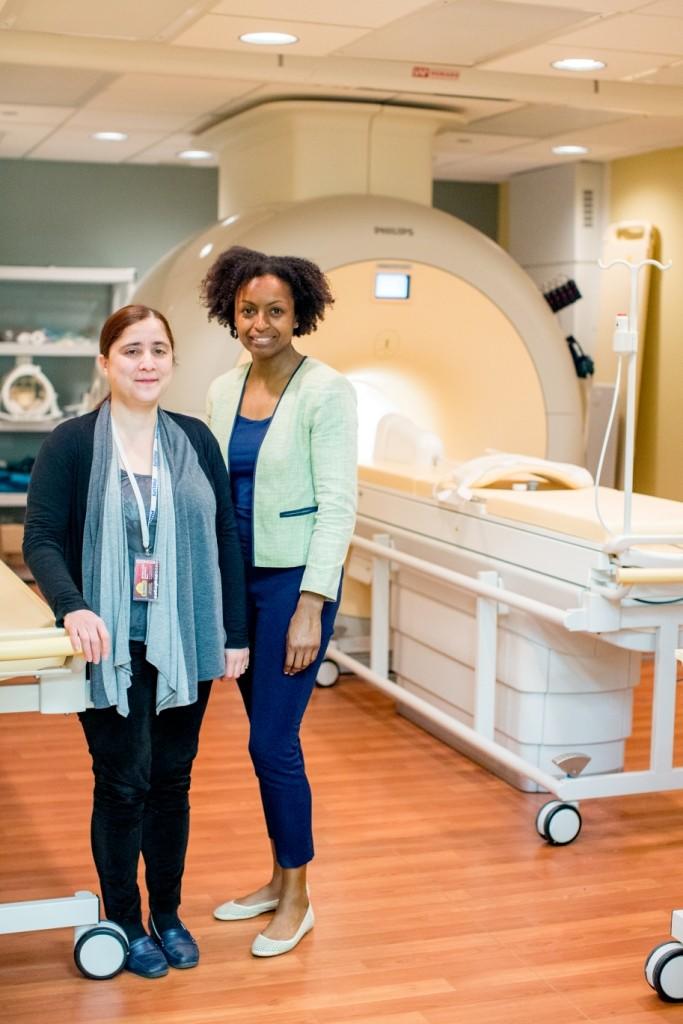Experts in High Intensity Focused Ultrasound (HIFU) Highlight Local Workshop
by Marcello Bernardo

On May 21st & 22nd, the Thunder Bay Regional Research Institute (TBRRI) will be hosting a workshop geared towards healthcare and research professionals who are interested in learning about high intensity focused ultrasound (HIFU). This workshop aims to teach how minimally invasive technology like HIFU can deliver a personalized treatment to patients, reduce side effects and help to improve patient quality of life.
The roster of speakers will feature a who’s who of experts in the field of HIFU such as Dr. Naana Jumah (TBRRI / TBRHSC / Northern Ontario School of Medicine), Dr. Laura Curiel (TBRRI / Lakehead University), Dr. Samuel Pichardo (TBRRI/ Lakehead University), Dr. Charles Mougenot (Philips Healthcare), Dr. Adam Waspe (Centre for Image Guided Innovations and Therapeutic Intervention / Hospital for Sick Children) and Dr. William Chu (Sunnybrook Health Sciences Centre).
In addition to the workshop, a general information booth will be located on the 2nd level of TBRHSC (outside of Volunteer Services) on May 19th and 20th. Visitors to the booth will have the opportunity to learn more about the workshop, the experts who will be presenting and get answers to frequently asked questions about HIFU such as:
What is High Intensity Focused Ultrasound (HIFU)?
High intensity focused ultrasound (HIFU, or sometimes FUS for Focused Ultrasound) is a medical procedure that uses high intensity ultrasound waves to locally heat and destroy diseased or damaged tissue through ablation.
How does HIFU work?
HIFU uses mechanical sound waves, concentrated to a localized area in a shape of a cone. The mechanical waves, concentrated at a focal point, focus enough energy to generate the required amount of heat to destroy targeted cells.
What is HIFU currently being used for?
HIFU is currently used to treat uterine fibroids, prostate cancer and painful bone metastases. The first clinical trials on brain diseases such as essential tremor and Parkinson’s, are currently being conducted in the United States and Canada. Clinical trials have been conducted to treat kidney cancer, primary and secondary liver cancer, pancreatic cancer and bladder cancer along with other therapeutic uses.
When is HIFU used?
HIFU is only useful to treat a confined disease. It can’t be used to treat tumours that are widespread. This means that HIFU may not be suitable for people with cancer that has spread to more than one location in their body.
Do patients feel pain during the procedure?
Although mostly mild, discomfort and some pain are the most common side effects of the procedure. Pain arising from sustained positioning on the table during therapy is the most commonly reported type of discomfort. Pain may also arise from the HIFU beam during treatment, especially when targeting cells that are located near a patient’s nerves. During uterine fibroid treatments, some patients report stimulation of sciatic and other nerves due to interaction of the ultrasound energy and nerve tissue. Monitoring during the therapy and consistent communication with the patient are critical to ensure the safety of the procedure.
Some procedures such as treatment of prostate cancer with HIFU are completed under spinal anesthesia, which is required so that the patient remains comfortable and still during the two-hour treatment. This is very important because when the machine detects any movement, treatment stops immediately. This is one of the safety mechanisms offered with HIFU since programming and treatment is very precise.
Can patients be treated with HIFU here in Thunder Bay?
Thunder Bay Regional Health Sciences Centre does have a clinical approved device and we are currently preparing for clinical trials to treat uterine fibroids.
Where else in Canada can patients be treated with HIFU?
Multiple sites in Canada are currently working on HIFU for treatment, clinical trials or research. A large and active HIFU centre is located at Sunnybrook Health Sciences Centre in Toronto, Ontario. Some sites are private clinics that offer HIFU treatment for prostate cancer.
Where can I get more information about HIFU?
The Focused Ultrasound Foundation (www.fusfoundation.org) has many reports and information for different audiences as well as comprehensive highlights of the progress in this technology.
* * * *
For more information or to register for this workshop, please contact Chris Abraham at cabraham@lakeheadu.ca